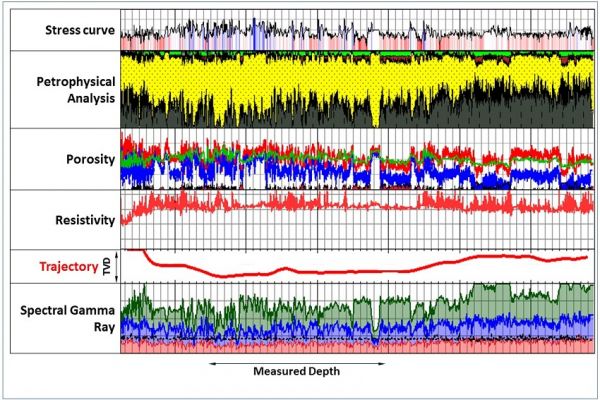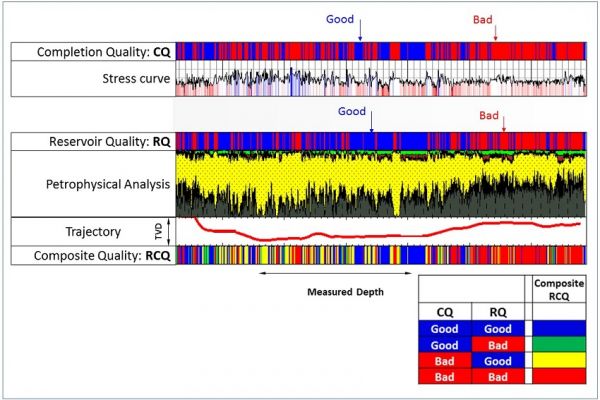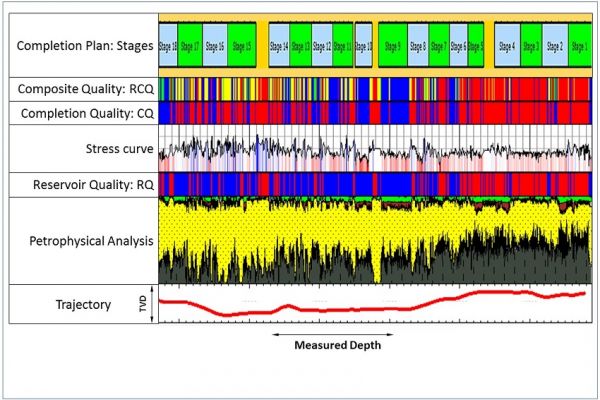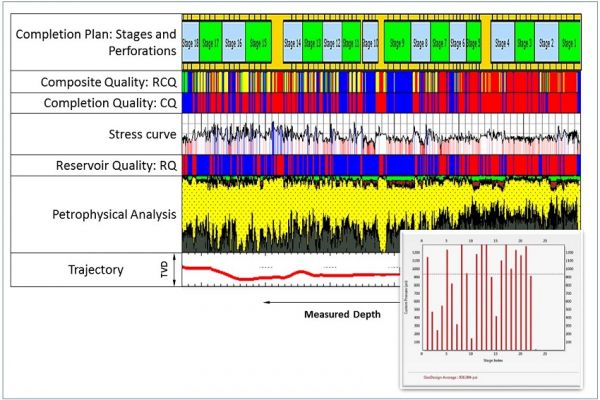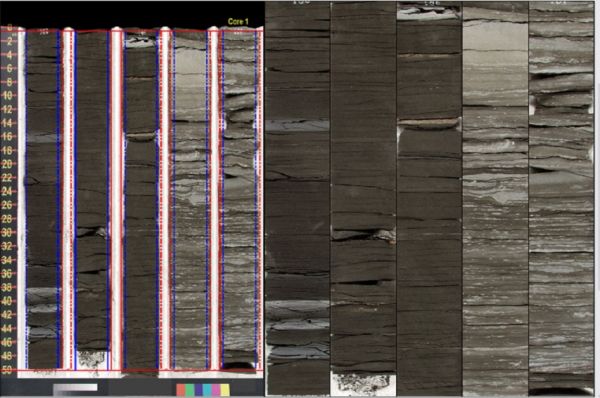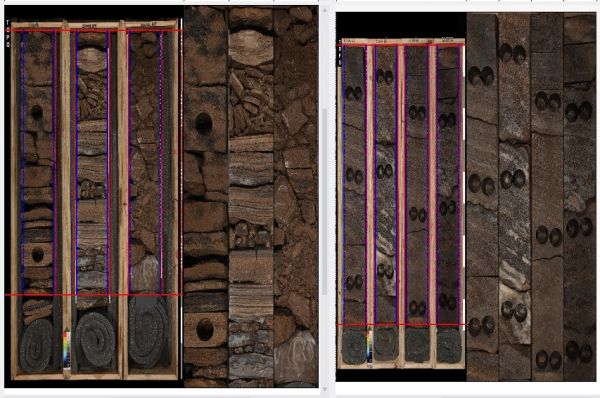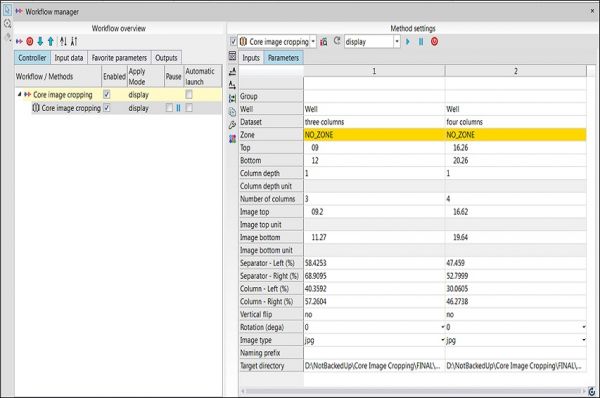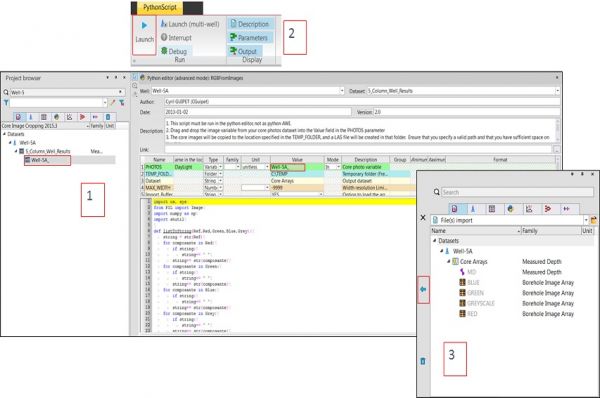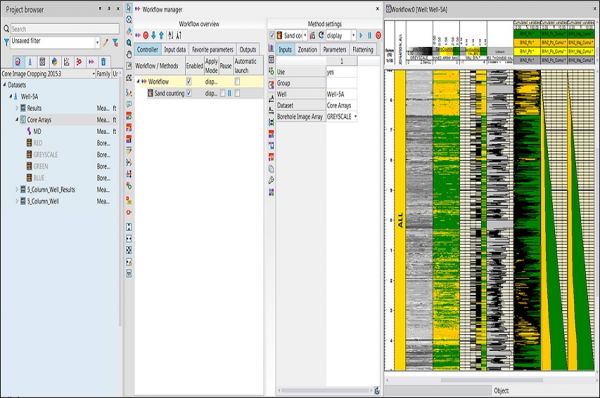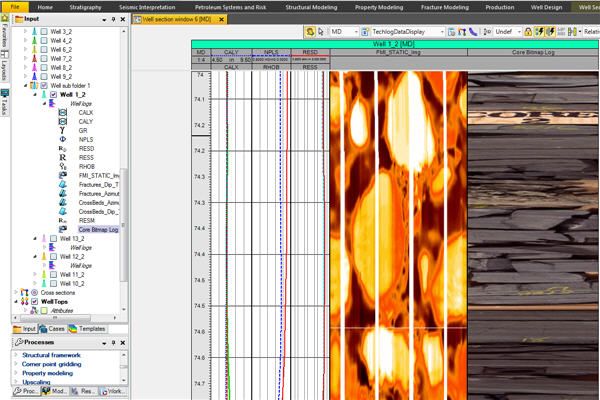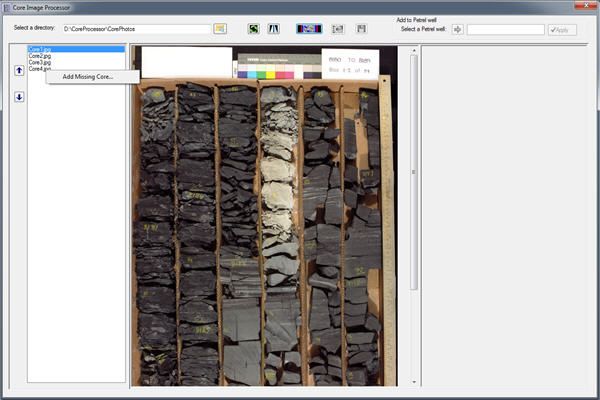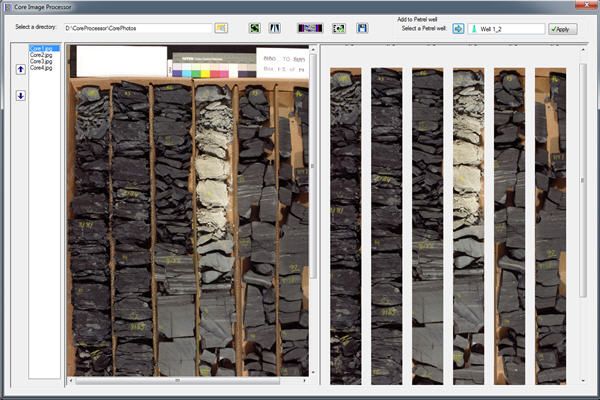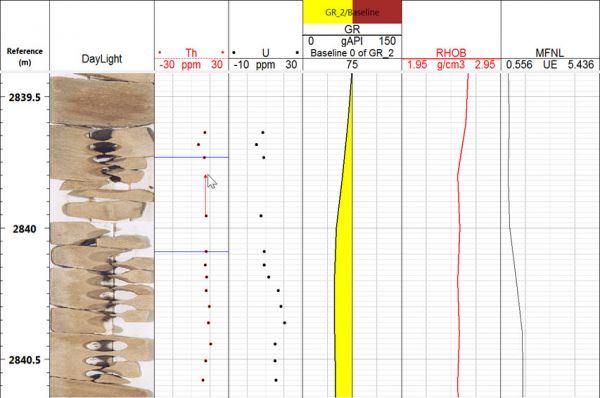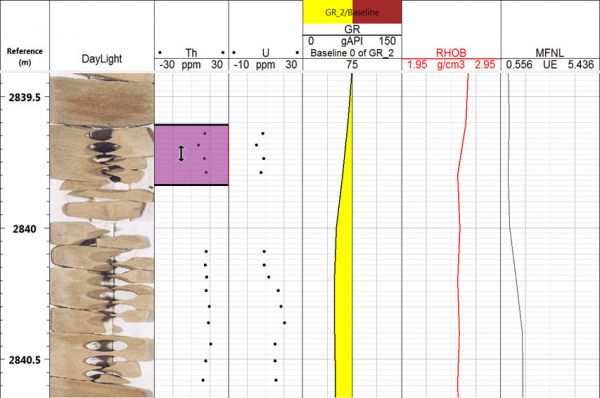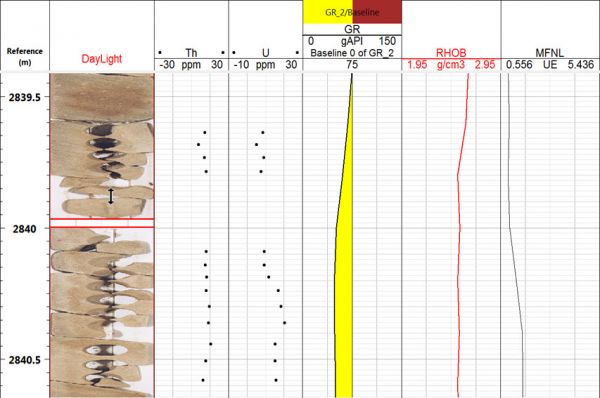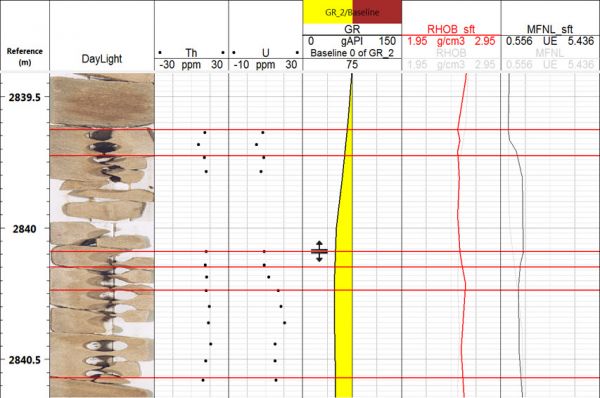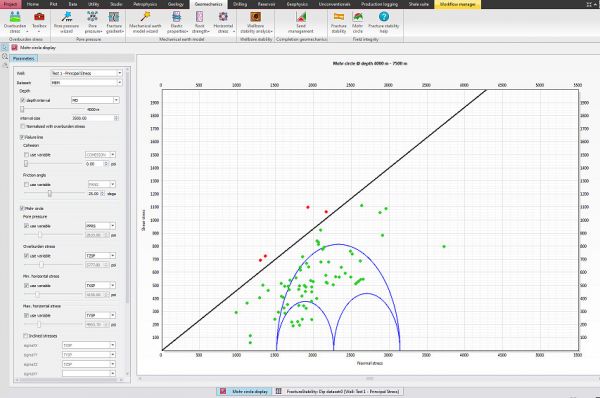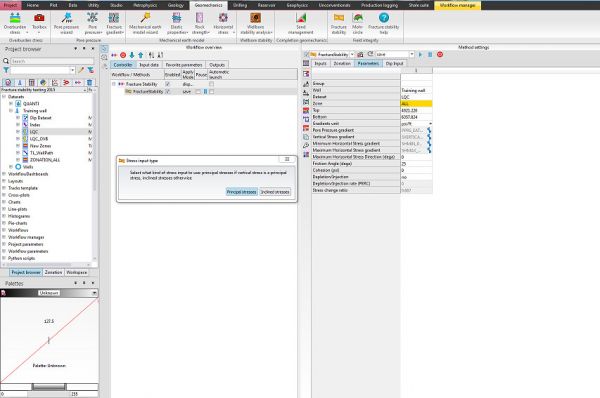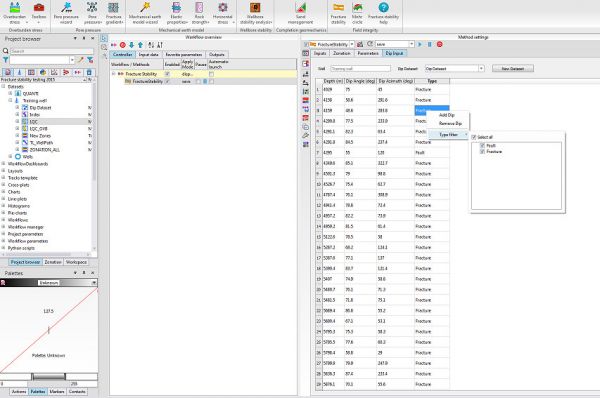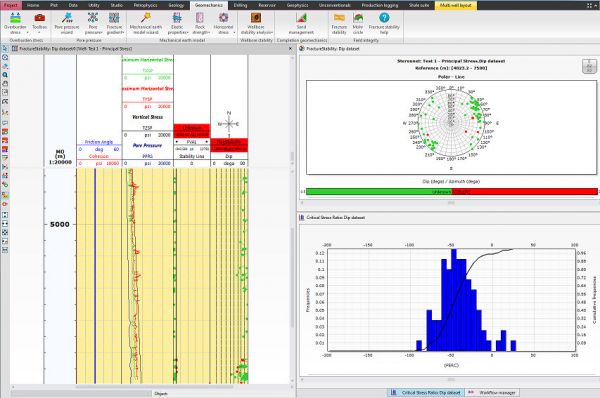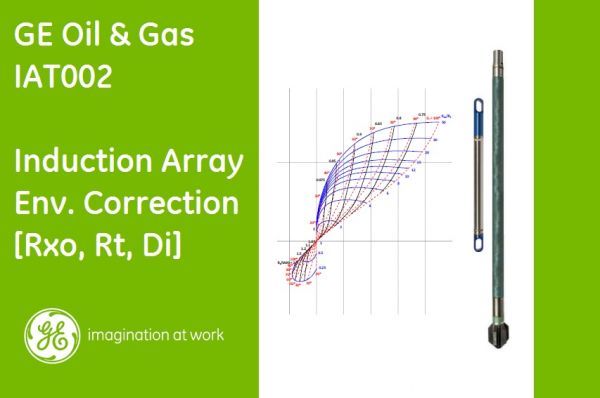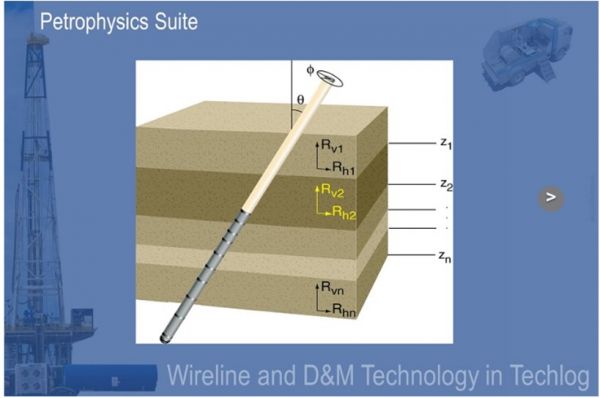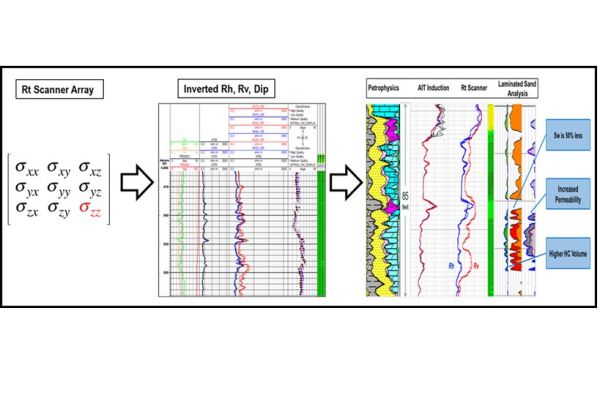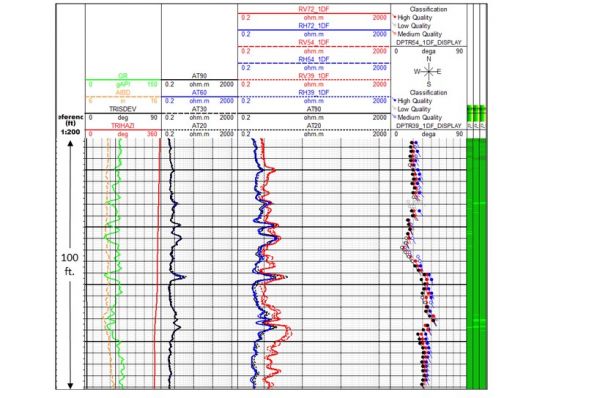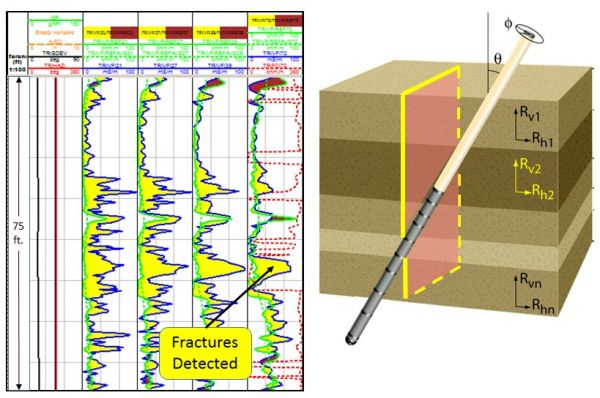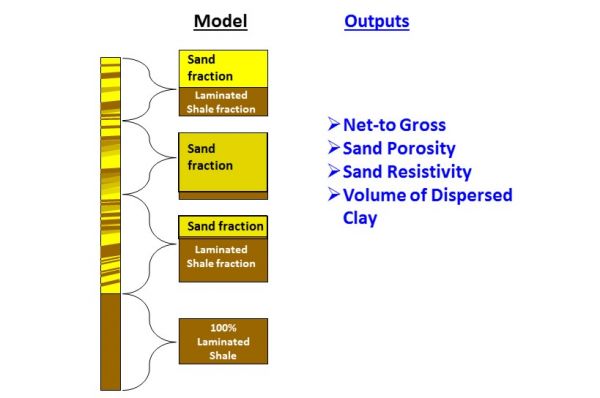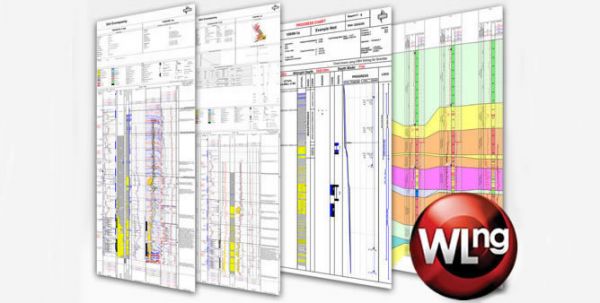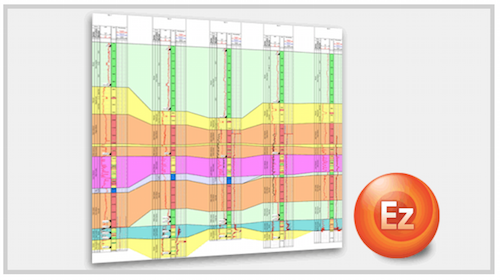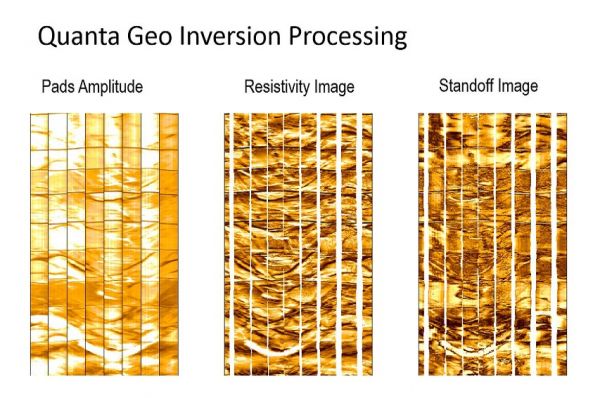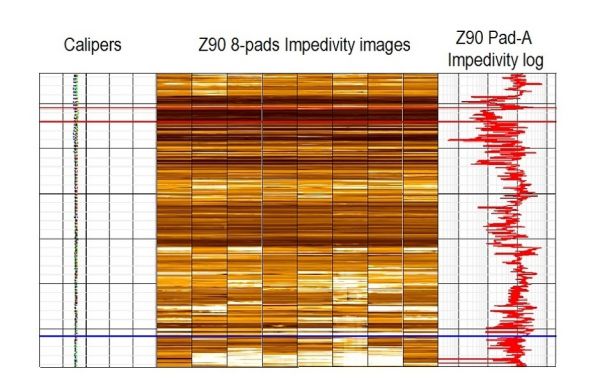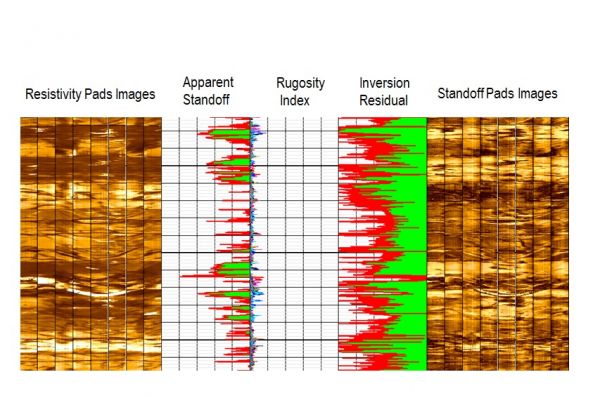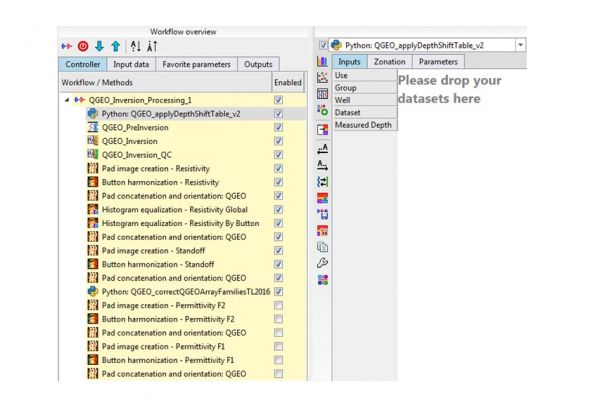Petrophysics Software
Petrophysical Engineering discipline is a member of the reservoir integrated study and management team. Petrophysicists interpret acquired well log data from newly drilled wells from a field to provide insights on reservoir rock properties such as relation between porosity and permeability on log scale, porosity, initial water saturation, 2d volumetrics, calculating Net reservoir rock (NTG), etc. Later, these basic information are used in other disciplines like geology and geoscience engineering to generate 3D volumes of reservoir properties.
Lay out the perforation clusters.
Completion Advisor View automatically generates histograms of the stress differential between perforation clusters in each stage. Higher stress differentials within the stages increase the likelihood that the interval may not be optimally stimulated. The completion ...
Read More ...
Sand Counting Analysis on RGB core images
Sand Counting analysis* using the RGB core image array. *Requires an additional module
Plug-in Overview
Prepare core images efficiently with automated cropping of core boxes and conversion to core column photos. Fully embedded in Techlog's interface, you ...
Read More ...
Individual Cropped Core Images
Any, or all, of the 24 resulting processed images can be inspected. Fine tuning of the resulting images can be performed within the tool. Once the user is satisfied with the results, they have the option of loading them directly into their Petrel project, saving the i ...
Read More ...
Shift One Core Point
Easily shift point data one at a time
Plug-in Overview
The Depth Shift plug-in enables the graphical shifting of data interactively from the LogView window in Techlog. Five new shifting modes are added to LogView mouse toolbar allowing the user the depth shift one core point, ...
Read More ...
Logview and stereonet outputs
Fracture stability provides a logview and stereonet plot output.In the logview the input data (log and fracture orientations) are displayed. The output of the algorithm us the evaluation of the Mohr-Coulomb failure criterion fore each fracture orientation. Green values ...
Read More ...
Determination of Rt, RXO and invasion diameter
This module determines the true resistivity, flushed zone resistivity and the diameter of invasion using
Plug-in Overview
This plug-in determines the true resistivity, flushed zone resistivity and the diameter of invasion using formation conductivity ...
Read More ...
Laminated Sand Analysis (LSA)
The Laminated Sand Analysis model consists of alternating sand and shale laminations. LSA computes net-to-gross for the interval and key properties of the sands. LSA utilizes an industry standard bimodal model of alternating sand and shale laminations, with dispersed c ...
Read More ...
Winlogng - The Next Generation Of Winlog
Rewritten from the ground up to support increasingly sophisticated E&P log drawing requirements, our breakthrough technology sets a new standard for the industry.
Built with the latest software development tools and techniques, Winlogng introduces unpar ...
Read More ...
EZ-Correlate - The Correlation Option For Gravitas
Easily create quick, simple and beautiful correlation charts of well data.
For the first time, wellsite geologists and operations geologists have access to intuitive correlation tools to compare a drilling well against offset or drilled wells.
Th ...
Read More ...
From Quanta Geo Raw Measurements To Quantitative Images
Quanta Geo Inversion is an advanced processing taking as input measured amplitude and phase images; it outputs formation resistivity and standoff images. The combination of these images can be used to identify open features (fracture, vug, bre ...
Read More ...


